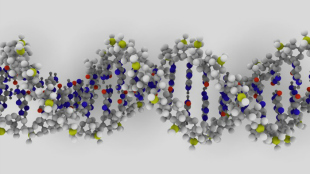 WIKIMEDIA, YNSEApolipoprotein C3 (APOC3) increases triglyceride levels in the blood, which in turn are tied to a higher chance of cardiovascular disease. Two studies published in the New England Journal of Medicine this week (June 18) report that people with a genetic mutation in the gene for APOC3 have not only lower triglyceride concentrations, but a reduced risk of heart disease as well.
WIKIMEDIA, YNSEApolipoprotein C3 (APOC3) increases triglyceride levels in the blood, which in turn are tied to a higher chance of cardiovascular disease. Two studies published in the New England Journal of Medicine this week (June 18) report that people with a genetic mutation in the gene for APOC3 have not only lower triglyceride concentrations, but a reduced risk of heart disease as well.
“In medical school we were told to ignore triglycerides and focus on [high-density lipoprotein],” Ethan Weiss, an associate professor at the University of California, San Francisco, School of Medicine, told Forbes. “It turns out that we probably had it backwards, and that we should be paying attention to triglycerides and ignoring HDL.”
In one study, an analysis of more than 110,000 people found that 498 participants who had a loss-of-function mutation in the APOC3 gene had a 40 percent drop in their risk of coronary heart disease, compared to those without such a mutation. In a different group of participants, carriers had 39 percent lower plasma triglyceride levels, 22 percent higher HDL cholesterol levels, and LDL cholesterol levels that were 16 percent lower.
Similarly, in ...




















